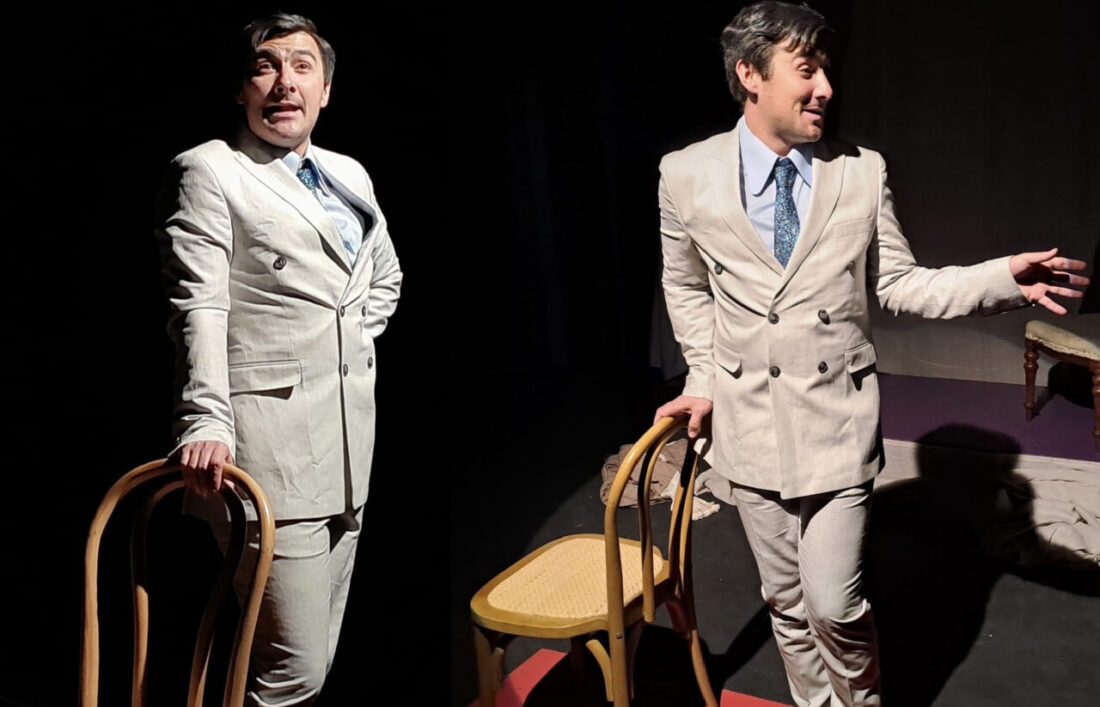

21 February 2025

If you, like me, were in one of the 20 million households who tuned to BBC 1 on Saturday nights between 1978 and 1981 to see camp comic Larry “Shut That Door!” Grayson host The Generation Game, then this 80-minute one-man show is like a warm nostalgia hug.
Larry was even more successful as the show’s host than Bruce Forsyth, who he replaced, and the £30,000 he earned for each show over the four-year run, made him a very rich man indeed. But no one was more surprised than him at his new megastar status after many many years struggling near the bottom of regional variety bills and performing at working men’s clubs.
As the show was pre-recorded on a Friday, he would take his dog for a walk at 6,45pm on Saturday and stare in people’s living room windows, telling his sister on his return, “I can’t believe it I was on every single telly!”
Larry, who was born to Ethel, a single unmarried mother and given away to a lowly paid miner and his wife who already had two daughters to raise as a foster chld, had always wanted to be a star from childhood and nothing was going to get in the way. In a rather unorthodox arrangement, his real mother visited at weekends and he was raised to believe she was his aunt Ethel. Following the death of his foster mum when he was just nine, he was raised by one of her daughters, Flo, who sacrificed her own career and boyfriend (who didn’t want Larry tagging along) and the odd couple lived together in Nuneaton for the remainder of their lives. Larry was absolutely devoted to her.
As an up and coming artist, Larry did play big regional theatres – in the first act as a drag artist styled after Judy Garland, and the second act as himself (“double pay”) – at a time in the 1960s when the dawn of mass television meant that variety theatres were closing all over the country. Larry, however, had influential supporters in the business. Superstar female impersonator Danny La Rue only agreed to take his first holiday in six years if the management of his nightclub in London hired Larry as the replacement host. But his greatest stroke of luck came when Michael Grade agreed to be his agent.
Larry’s style of comedy was unique. He didn’t tell gags, and shunned one-line jokes instead creating his own conversational style of comedy that involved spinning highly amusing stories about a string of make-believe friends, such as Everard, Slack Alice, Apricot Lil and the local postman, Pop It In Pete.
And it’s wonderful to hear much of his material recreated here by Luke Adamson, as the spirit of Larry brought from the other side (“no, not ITV!”) by spiritualist Madame Credo, who Larry did actually consult while appearing in summer season in Paignton, playing fourth on the bill to Leslie Crowther, John Hanson… and Basil Brush! She told him he would soon be top of the bill and a household name. How right she was.
Luke performs with an easy charm and a twinkle in his eye – he knows the material is funny – but he just lacks Larry’s withering look of moral outrage when he drops another double entendre or malapropism.
Written by Tom Co0nery and confidently directed by Alex Donald, What A Gay Day! The Larry Grayson Story is a welcome addition to the one-man biopic genre. It perhaps outstays its welc0me at 80 minutes – Larry himself would have struggled to do more than 30 minutes of great material. Leave them wanting more.
Michael Grade, in the introduction to Mike Malyon’s Larry Grayson biography, Seems Like A Nice Boy, finishes a tribute with the line ‘What a grey day when he left us”.
This play brings him vividly back to life and delivers a splash of 70s colour. The audience the night I saw it roared their approval.
It runs at Bridge House Theatre to March 1 www.thebridgehousetheatre.co.uk